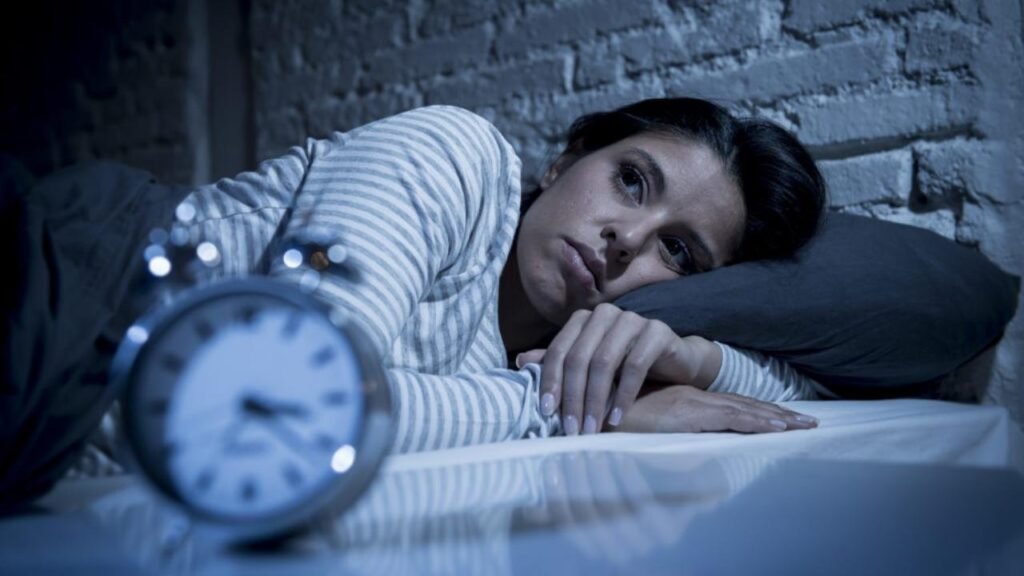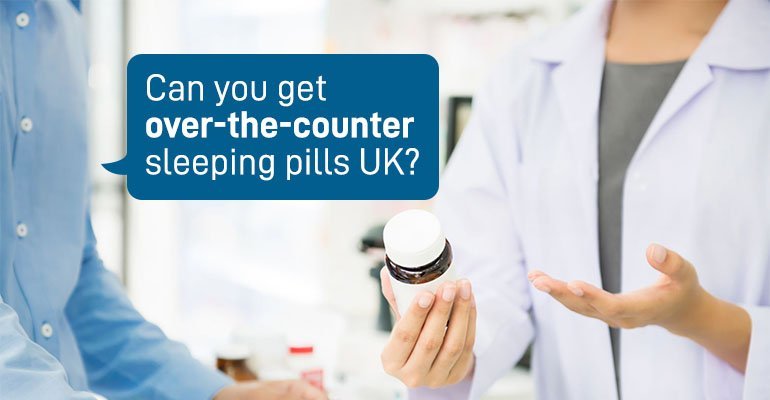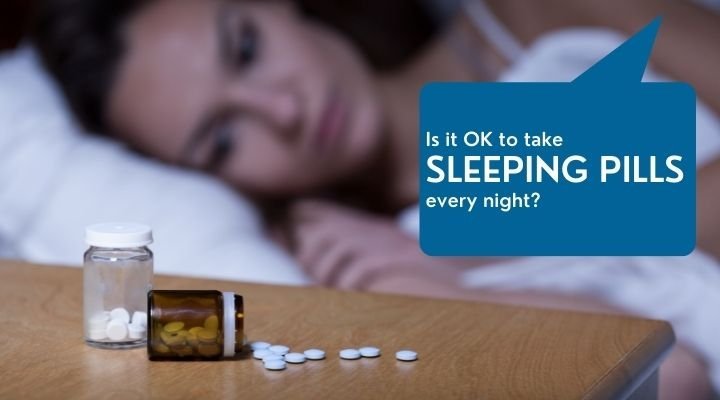Quitting alcohol can be a life-changing decision, but it’s not without its challenges. For many people, insomnia becomes a frustrating side effect during alcohol withdrawal. Sleepless nights can leave you feeling drained, irritable, and at times, questioning your resolve. But here’s the good news: insomnia is a temporary phase of recovery, and there are effective strategies to manage it.
This article dives into why insomnia happens after quitting alcohol, how long it typically lasts, and most importantly, actionable tips to help you get the restful sleep your body and mind need during recovery.
Why Does Quitting Alcohol Cause Insomnia?
To understand insomnia during alcohol withdrawal, it helps to know how alcohol affects your sleep. Alcohol is a sedative, meaning it can make you feel drowsy. However, it disrupts the critical stages of sleep, particularly REM (rapid eye movement) sleep. REM sleep is essential for restorative rest, mental clarity, and emotional regulation.
When you quit drinking, your body has to adjust to the sudden absence of alcohol. This leads to withdrawal symptoms, including hyperactivity in your brain and nervous system, which can make falling and staying asleep a challenge. It’s essentially your body working hard to regain balance, and while it’s a positive step toward recovery, the process can leave you tossing and turning at night.
How Long Does Insomnia Last After Quitting Alcohol?
The timeline for alcohol withdrawal insomnia varies from person to person. For some, symptoms improve within a week or two. For others, sleep struggles may linger for months, especially if alcohol consumption was heavy over an extended period. Factors like overall health, stress levels, and sleep habits play a significant role in your recovery timeline.
While the duration may feel unclear, what’s certain is that your body is healing, and poor sleep won’t last forever.
Symptoms of Insomnia After Quitting Alcohol
Insomnia linked to alcohol withdrawal might include one or more of the following symptoms:
- Trouble falling asleep, even when you’re tired.
- Waking frequently throughout the night and struggling to fall back asleep.
- Vivid dreams or nightmares that disrupt your sleep.
- Restlessness or heightened anxiety at bedtime.
These symptoms can also have a ripple effect, increasing cravings, lowering your mood, and making daytime tasks harder to tackle. Fortunately, there are steps you can take to ease these challenges.
The Consequences of Ignoring Insomnia During Recovery
Ignoring insomnia can have a significant impact on your recovery. Poor sleep weakens your immune system, making you more vulnerable to illness. It can also exacerbate anxiety or depressive symptoms, both of which are common during the early stages of quitting alcohol. Perhaps most concerning is the increased risk of relapse. Exhaustion makes it harder to resist cravings, creating a vicious cycle.
By addressing insomnia and prioritizing sleep, you give yourself the best shot at a successful and sustainable recovery.
Also Read: Can Insomnia Cause High Blood Pressure? The Hidden Health Risk You Shouldn’t Ignore
Actionable Tips to Manage Insomnia
Here are practical and effective strategies to combat insomnia while in recovery:
6.1. Build a Healthy Sleep Routine
A predictable sleep schedule helps regulate your body’s internal clock, making it easier to fall asleep and wake up refreshed.
- Go to bed and wake up at the same time every day, even on weekends.
- Swap evening screen time for calming activities like reading or meditating since blue light from devices disrupts melatonin levels.
- Establish bedtime rituals, such as drinking herbal tea, journaling to clear racing thoughts, or taking a warm bath.
6.2. Optimize Your Sleep Environment
Your bedroom should feel like a restful haven.
- Keep it cool, dark, and quiet. Invest in blackout curtains and a white noise machine if necessary.
- Use comfortable bedding that suits your sleep preferences. A supportive mattress and breathable sheets make a big difference in comfort.
- Reserve your bed for sleep only, training your brain to associate it with rest.
6.3. Nutrition and Hydration Tips
The right foods and drinks can support better sleep.
- Avoid caffeine after lunch and steer clear of sugary snacks or heavy meals close to bedtime.
- Stay hydrated during the day, but limit fluids an hour before bed to prevent nighttime trips to the bathroom.
- Have a sleep-promoting snack, like a banana or handful of almonds, about 30 minutes before bed.
6.4. Explore Mindfulness and Relaxation Techniques
Relax your body and mind to prepare for restful sleep.
- Practice deep breathing exercises, like the 4-7-8 technique, to ease anxiety and slow your heart rate.
- Use meditation apps or guided sleep stories to calm racing thoughts.
- Try progressive muscle relaxation by tensing and relaxing each muscle group, helping to release physical tension.
6.5. Consider Light Exercise
Physical activity can improve your mood and make it easier to sleep at night.
- Engage in moderate activities like walking, stretching, or yoga, which reduce stress and improve overall health.
- Avoid vigorous exercise close to bedtime, as it can energize your body and delay sleep.
6.6. Monitor and Reduce Stress
Stress can be a major roadblock to restful sleep.
- Use journaling as a way to reflect on your emotions or list out tasks for the next day, helping to reduce bedtime anxiety.
- Build a support system by talking to family, friends, or a recovery group. Having someone to listen can lighten your mental load.
- Learn time management techniques to reduce feelings of overwhelm. Breaking larger tasks into small, manageable steps helps create a sense of control.
6.7. Try Natural Remedies or Consult a Doctor
For stubborn cases of insomnia, additional measures can help.
- Consider supplements like melatonin or magnesium, but consult a healthcare provider before trying anything new.
- Use aromatherapy with calming scents like lavender or chamomile via oils, diffusers, or sprays.
- If insomnia persists, seek medical guidance. Therapies like cognitive behavioral therapy for insomnia (CBT-I) or a short-term sleep aid may be recommended.
When to Seek Professional Help
If insomnia persists for a month or more or begins to interfere with your recovery, daily functions, or mental health, don’t hesitate to reach out to a professional. Therapists, sleep specialists, and addiction counselors can provide tailored solutions, from therapy to medications, to ensure you’re on track with both your recovery and quality sleep.
Success Stories and Encouragement
Imagine someone who struggled with insomnia during their first month of quitting alcohol. They implemented relaxing evening routines, started journaling, and worked on their sleep environment. Slowly but surely, the sleepless nights faded, and restful sleep returned. Their days became more manageable, their mood lifted, and their resolve to stay sober strengthened.
Your story can follow the same path. Progress may feel slow, but remember, each step forward is meaningful.
FAQs
Can insomnia after quitting alcohol be permanent?
For most people, insomnia is temporary. Long-term sleep issues may signal an underlying condition that a doctor can address.
Are there specific foods that can help me sleep better?
Yes, snacks rich in tryptophan (like turkey, bananas, and almonds), magnesium (like leafy greens and nuts), or melatonin (like cherries) can promote better sleep.
Should I take sleeping pills during recovery?
Sleeping pills should only be used under medical supervision, as they may interfere with your recovery.
Closing Thoughts
Insomnia when quitting alcohol can feel like a heavy burden, but it’s one you can overcome. By creating healthy habits, supporting your sleep naturally, and staying committed to your recovery, better rest is within reach. Be patient with yourself and celebrate small victories. Each good night’s sleep brings you closer to a brighter, healthier future.
Also Read:Why Insomnia Occurs During Pregnancy: Causes, Symptoms, and Tips for Better Sleep





